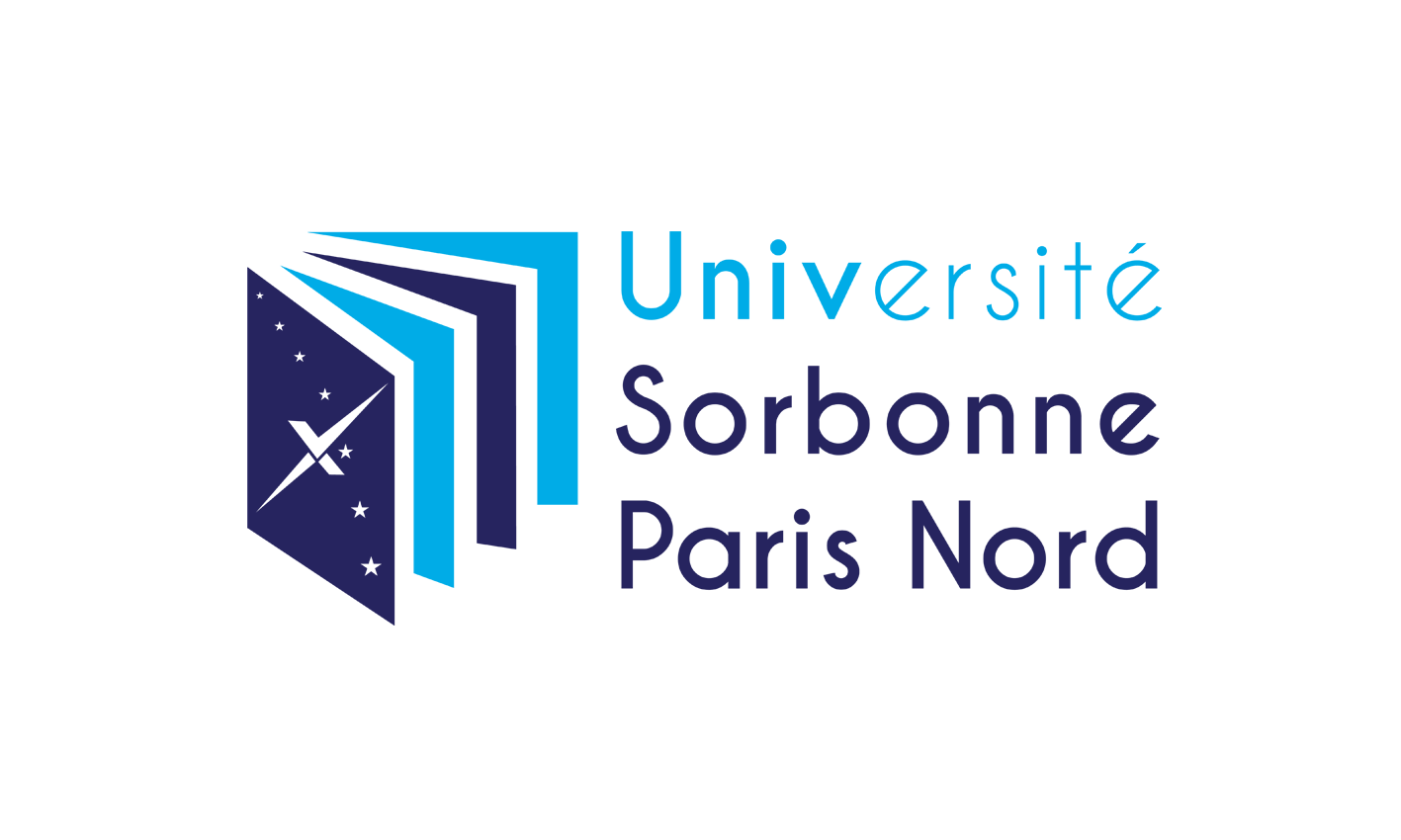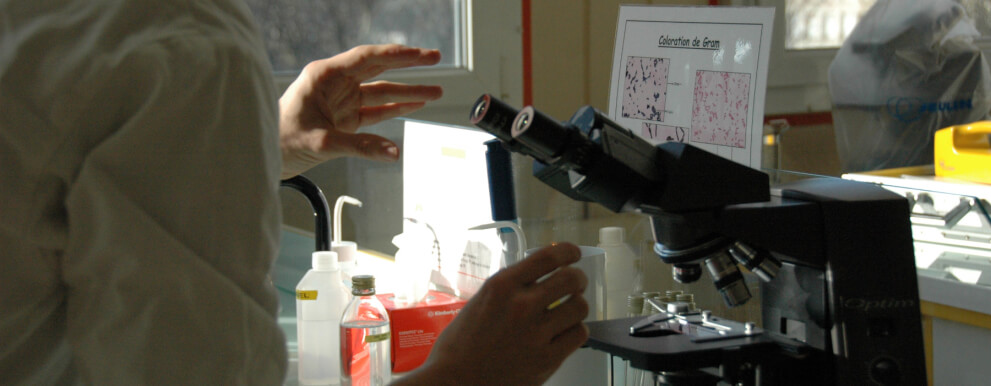Following the session of the Research Committee of April 10, 2015, a call for proposals was launched, mainly to encourage innovative projects aiming to achieve scientific breakthroughs while reinforcing the research potential of the laboratories of Université Sorbonne Paris Nord. Like last year, the selection process for Research Quality Bonus funding includes a short list and an interview of the project leaders of the shortlisted projects. Details of this procedure are described on this page.
> Application form for 2016 Research Quality Bonus funding
On the Research Day of September 9, 2014, the Research Committee reiterated its desire to continue to grant Research Quality Bonus funding but specified that it wanted to shift its focus to new and/or innovative projects involving possible risk as well as to newly recruited teaching researchers and teaching researchers who have interrupted their research activity and wish to return to it on a sustained basis or who are conducting their research outside of Université Sorbonne Paris Nord and wish to eventually become part of one of our university’s laboratories. However, the Research Committee does not want Research Quality Bonus funding to be used to supplement the general and recurring funding of laboratories indirectly. On the basis of the proposals above, the Research Committee is launching a call for proposals for Research Quality Bonus funding. Proposals are not limited to a specific topic but should be innovative in nature and aim to eventually produce a scientific breakthrough and/or involve possible risk, requiring prior demonstration of their feasibility (proof of concept). In addition, particular attention will be given to proposals that involve newly recruited teaching researchers, PhD students, post-docs and/or teaching researchers of Université Sorbonne Paris Nord who wish to return to research activity on a sustained basis or who are conducting their research outside of the university but want to become part of one of the university’s laboratories through a scientific collaboration. The estimated total amount available for this call for proposals is €225,000 excluding tax and the range of funding that can be requested per project is €10,000 to €40,000 excluding tax. Eligible expenses include equipment and operational expenses (including missions and services) but not the cost of temporary staff. The project leader must be a member of one of the university’s laboratories and must not be a previous recipient of funding from the BQR as a project leader within the last two years (2014 and 2015). Any Research Quality Bonus grant awarded must be taken up in 2016 and a scientific and financial report must be sent to the Office for Research and Doctoral Studies (BRED) before the end of February 2017. In order to avoid unnecessary multiple funding, the breakdown of the project’s budget and and joint funding involved (whether received or requested) must be very specific. In particular, projects concerning the research topics of existing research structures or “laboratories of excellence” (Labex) must justify their response to the call for proposals in detail. Similarly, project leaders must indicate whether they have already submitted or will submit applications for funding for their project to Sorbonne Paris Cité University or any domestic or foreign agencies. Applications must be submitted to the Office for Research and Doctoral Studies (BRED) (Fatiha Nécibi, ) via the department or institute concerned in electronic form (pdf), no later than Tuesday May 12, 2015 for letters of intent (so they can be assessed at the meeting of the Research Committee on May 19, 2015) and no later than July 6, 2015 for applications for projects that have been shortlisted. Letter of intent The letter of intent must be submitted via the department or institute concerned. It should be one to two pages in length and describe the main aspects of the project: the project leader, participants, a brief description of the project, the project’s relevance with regard to the criteria of the call for proposals, the added value for the laboratory and the university, budget, etc. The laboratories must ensure that applications comply with the criteria of the call for proposals and include a brief supporting letter and, in the case of the submission of more than one proposal, a ranking of the various proposals in order of priority. An opinion from the laboratory’s department or institution is not required at this stage. In accordance with the criteria of the call for proposals and taking into account the potential added value of the Research Quality Bonus funding for the proposals submitted, the Research Committee will make a short list, possibly in accordance with a set of specific requirements. Projects that have not been selected at this initial stage cannot proceed further. 2. Submission of the completed application (see sample application below) via the department or institute concerned, which may enclose its recommendation. In principle, the application must be produced in French but it can be produced in English if international experts will be required to evaluate it because of the topic. It must include the presentation of the project leader and the participants (a short CV and list of scientific publications in the last five years of the project leader and the main participants). It must include a complete but concise description of the project (4-5 pages maximum) that clearly explains how the project responds to the call for proposals as well as the added value expected for the scientific community and Université Sorbonne Paris Nord. Finally, the application for the project must include a supporting letter from the laboratory’s director. The entire application will be shared with at least one expert external to the university. A list of possible experts will not be requested but it is possible to submit the names of experts in a separate document who may have a conflict of interest with the project leader or the project’s approach with a brief explanation. The expert’s opinion will be shared with the project leader before his or her interview. The evaluation criteria and the aspects of the project that will be evaluated are described below. These are essentially the same as those for previous calls for proposals. All the corresponding information must be included in the application in order for the project to be properly evaluated. 3. Interview of project leader At some time in November, shortlisted project leaders who have submitted an application will be interviewed briefly by the Research Committee for about 20 minutes (10-15-minute presentation + 10 minutes of questions). Project leaders who are not available on this day must be represented by one of the project participants. Two advisors in the Research Committee will be assigned to each project. In stage 1, these advisors will give an oral summary of the project to the Research Committee for the purposes of the short list. In stage 2, the advisors will propose a list of external experts who are qualified in the project’s topic, which will exclude experts who have been identified as having a possible conflict of interest. In stage 3, the advisors will be responsible for highlighting the main characteristics of the project when the Research Committee deliberates following the interviews. The shortlisted projects will then be evaluated by at least one expert external to the university proposed by the Research Committee’s advisor. The expert will be asked explicitly to declare that he or she has no conflict of interest (whether positive or negative) with the project’s participants and he or she will receive the expert’s charter. In the event of any doubt regarding the quality or objectivity of the first expert, a second expert may be enlisted in accordance with the same conditions. The expert must rate each of the criteria defined below (A = very good, B = good, C = adequate, D = inadequate) and justify his or her choice with supporting comments. The criteria that the experts will be given to consider are as follows. National and international reputation, scientific publications, dynamism of the research conducted by the persons involved, scientific strength of the team, the quality of the participants’ skills and how they complement each other. The expert will be informed that certain projects can deliberately include researchers who are currently not highly productive or who conduct their research outside of the university with the intention of involving them in regular research activity in a laboratory of Université Sorbonne Paris Nord in the future. Positioning of the new project in relation to the research topics of the laboratory, justification for the risk taken and/or the need for a demonstration of a proof of concept. Quality of the justification for the scientific objectives, particularly in relation to their added value in the subject area. Strength and/or originality of the project’s positioning and relevance in relation to domestic and foreign prior art. The nature of the objectives and their potential impact if they are achieved, prospects and possible technological or social benefits. Strength and suitability of human and material resources in relation to the objectives, relevance of the methods and techniques proposed, the team’s ability to implement the proposed plan, consideration of the risk of failure and fallback solutions. Finally, the expert will give a general recommendation. A = deserving of top priority; B = deserving of second-tier priority; C = deserving of possible consideration subject to certain reservations; D = not recommended. The expert’s report (anonymous) will be passed on to the project leader before the interview so that he or she can discuss the expert’s criticisms.To encourage innovative projects and reinforce the university’s research potential
The procedure takes place in three stages
Project leader and participants
Innovation of the project and/or possible risk involved
Scientific objectives of the project
Positioning in relation to prior art
Potential impact of the project
Working plan and feasibility































